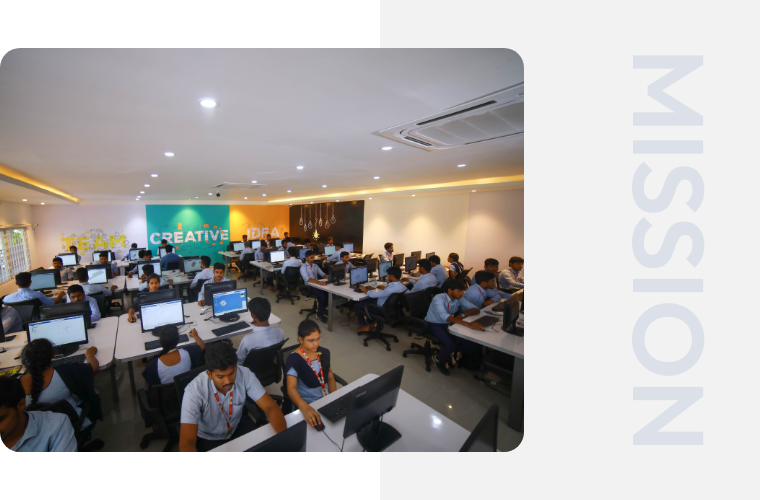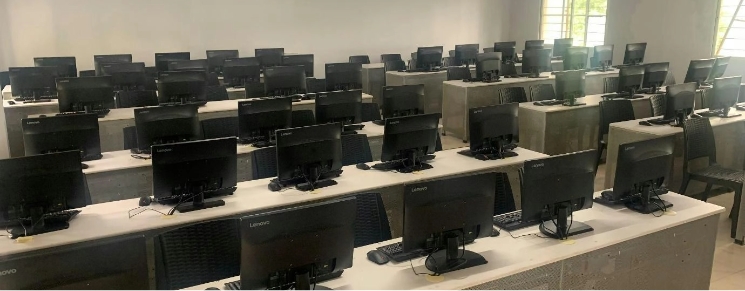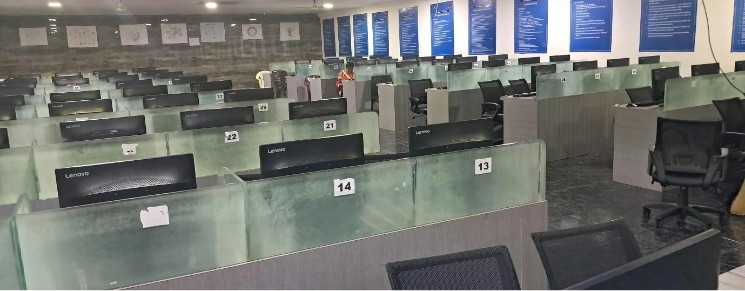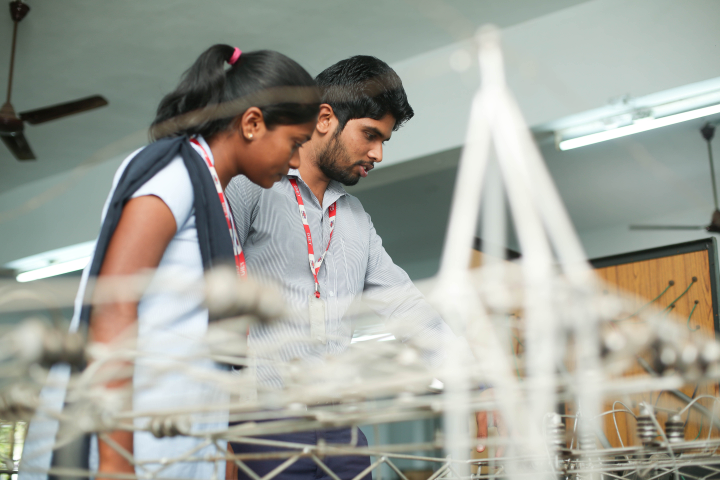Department Profile
Overview
The Cyber Security branch in college education emphasizes preparing students for careers in information security and technology. Colleges offer specialized courses and degree programs in cybersecurity, covering topics such as network security, cryptography, and ethical hacking. Through hands-on experience and real-world simulations, students learn to defend against cyber threats and protect sensitive data. College cybersecurity programs often collaborate with industry partners to provide internships and practical training, ensuring graduates are well-equipped for roles in the rapidly evolving cybersecurity field. This educational focus not only addresses the growing demand for cybersecurity professionals but also strengthens national and global cybersecurity defenses.
Genesis

Our Vision
Our Mission
- Prepare professionals in both academic and industrial settings capable of leading, designing and developing various projects in different areas of cybersecurity.
- To innovate in scientific research, to provide the required security services to individuals and contribute to the development of society.
- To introduce best practices of Cyber and Information Security protection, integrate them seamlessly with organizational processes
- To introduce best practices of Cyber and Information Security protection, integrate them seamlessly with organizational processes

Program Outcomes
After completion of the program, a successful graduate will be able to:
Program Outcomes
- Engineering Knowledge: Apply the knowledge of mathematics, science, engineering fundamentals, and an engineering specialization for the solution of complex engineering problems.
- Problem Analysis: Identify, formulate, research literature, and analyze complex engineering problems reaching substantiated conclusions using first principles of mathematics, natural sciences, and engineering sciences.
- Design/Development of Solutions: Design solutions for complex engineering problems and design system components or processes that meet the specified needs with appropriate consideration for public health and safety, and cultural, societal, and environmental considerations.
- Conduct Investigations of Complex Problems: Use research-based knowledge and research methods including design of experiments, analysis and interpretation of data, and synthesis of the information to provide valid conclusions.
- Modern Tool Usage: Create, select, and apply appropriate techniques, resources, and modern engineering and IT tools including prediction and modeling to complex engineering activities with an understanding of the limitations.
- The Engineer and Society: Apply reasoning informed by the contextual knowledge to assess societal, health, safety, legal, and cultural issues and the consequent responsibilities relevant to the professional engineering practice.
- Environment and Sustainability: Understand the impact of the professional engineering solutions in societal and environmental contexts, and demonstrate the knowledge of, and the need for sustainable development.
- Ethics: Apply ethical principles and commit to professional ethics and responsibilities and norms of the engineering practice.
- Individual and Team Work: Function effectively as an individual, and as a member or leader in diverse teams, and in multidisciplinary settings.
- Communication: Communicate effectively on complex engineering activities with the engineering community and with society at large, such as being able to comprehend and write effective reports and design documentation, make effective presentations, and give and receive clear instructions.
- Project Management and Finance: Demonstrate knowledge and understanding of the engineering and management principles and apply these to one’s work, as a member and leader in a team, to manage projects and in multidisciplinary environments.
- Life-long Learning: Recognize the need for, and have the preparation and ability to engage in independent and life-long learning in the broadest context of technological change.
Program Educational Objectives
Within a few years after the graduation, the graduates will be:
Program Educational Objectives
- To be able to comprehend, understand and analyze computer science, cyber security problems and relate them with real life.
- To impart exhaustive knowledge of cyber security to cater the industrial needs, excel in higher studies and innovation in related engineering and management fields.
- To promote collaborative learning and spirit of team work through innovation or entrepreneurship in technology development, deployment and diverse cyber ethics.
Program Specific Outcomes
At the end of the programme the specific abilities that will be acquired are
Program Specific Outcomes
- Develop secure software with vulnerability assessment, and security requirements, designed with the least privileges for the protection of digital applications.
- Evaluate the function of cyber security by identifying the tools and systems to minimize the risk to an organization’s cyberspace.
Our Courses
UG PROGRAM
4 YEARS
B-Tech in Computer Science
Computer Science Department
The Dept. of CSE provides the best platform for a budding computer engineer undergraduate to achieve the highest position in life
PG PROGRAM
4 YEARS
M-Tech in Computer Science
Computer Science Department
Graduates of this program will be well-prepared to pursue careers in a wide range of industries, as well as pursue further academic and research opportunities.
Head of Department

Dr. R. Tamilkodi
Head of the Department
Received Ph.D degree in Saveetha University,Chennai, in 2020, M.Tech (IT) from Karnataka University, Karnataka in 2011 and MCA degree in Bharathidasan University, Trichy, in 2002. Presently associated with Godavari Institute of Engineering & Technology, Rajahmundry,A.P as HOD for CSE(CS) Department . Having 18 Years of experience in teaching for undergraduate students and post graduate students. Research interests are in the areas of image processing, content based image retrieval,Network Security Machine Learning and cloud computing. 30 research papers has been published in reputed journals like scopus,SCI and web of science. Life member in ISCA and Red Cross Society and IAENG (International Association of Engineers).Acting as a Associate Editor in international journal (IJCINI) which is scopus indexed.
Infrastructure
The Department has 4 modern laboratories that serve the learning needs of the students.




Research and Development
Centre of Excellence
AVEVA CENTER OF EXCELLENCE
The Internet of Things (IoT) is a course about the new paradigm of objects interacting with people, with information systems, and with other objects. The course will focus on creative thinking and on hands-on project development.
The Internet of Things (IoT) is a system of interrelated computing devices, mechanical and digital machines, objects, animals or people that are provided with unique identifiers (UIDs) and the ability to transfer data over a network without requiring human-to-human or human-to-computer interaction.


Functionality
- The AVEVA Electrical designer training signifies to perform CAD designing for the AutoCAD drawing of different electrical equipment, sub-station and wiring.
Benefits
- The AVEVA Electrical administrator develops the student as the electrical project administrator with necessary administrative knowledge.
- This module has been developed for electrical engineer user who will be responsible for the equipment definition and specification.
- This training module is developed for the electrical engineer user who will be responsible for the cables creation, wiring and interconnections definitions.


